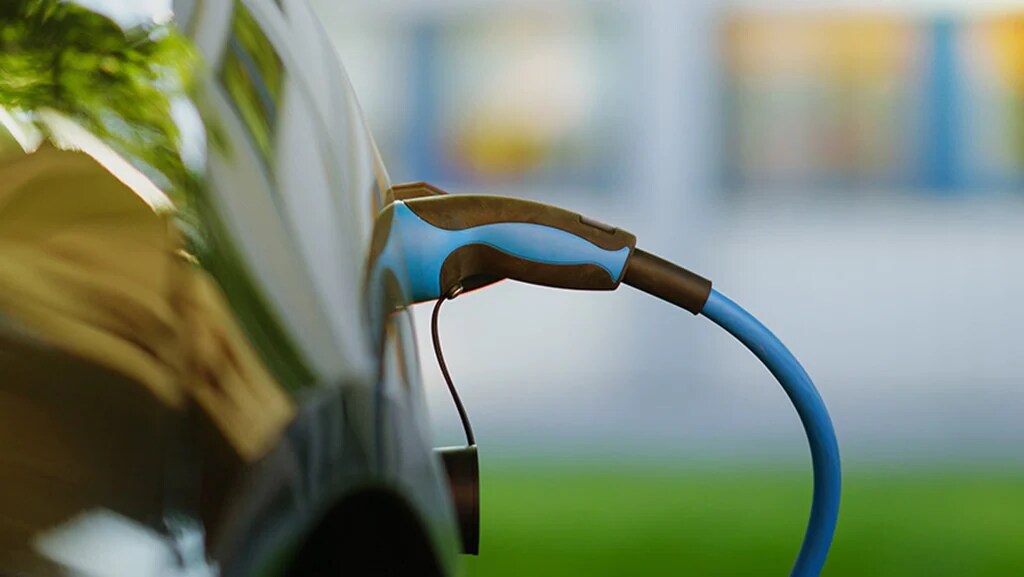
Electric cars are becoming popular for their excellent gas mileage, environmentally friendly fuel systems, and ever-advancing technology for smoother, more efficient driving. But despite all the advancements and improvements, some drivers still ask, "Is it cheaper to own an EV?" The short answer is that it depends on the EV you buy, your maintenance habits, and how much effort you put into the vehicle. Here's a closer look at EVs' ownership pros and cons to help answer whether owning one is cheaper.
Pros of EVs
EVs offer drivers many pros in terms of affordability. Consider these three pros of owning an EV in terms of cost-effectiveness:
More Affordable Fuel
EVs offer a more affordable fuel source than traditional gasoline. The electricity that powers EVs can be generated from various sources, including renewable energy sources like solar or wind power. This all translates to lower costs on average to charge up a car rather than to fill up the gas tank. According to EnergySage, you'll pay about $0.04 per mile to fuel up an EV compared to paying $0.14 per mile to fuel a regular internal combustion car. These savings can even happen in cities where electricity tends to be more expensive than the national average, as shown by a study performed by CNBC.
Tax Credits and Incentives
Federal and state governments also sometimes offer tax credits for owning EVs. The federal tax credit for EVs is the Plug-in Electric Drive Vehicle Credit, also known as the EV tax credit. This credit is available for purchasing new plug-in electric vehicles, including all-electric vehicles (EVs) and plug-in hybrid electric vehicles (PHEVs). The distinction is worth up to $7,500 and is available to individuals or businesses that purchase a qualifying EV. This can help EV owners save thousands on tax costs and fuel savings.
Component Replacement Savings
Another pro of EVs is that some components don't need to be replaced or are expected to remain operational for the vehicle's lifetime. This can save owners thousands on potential repairs and replacement parts. For example, the batteries in an EV are also designed to be long-lasting and can last between 10 to 20 years, according to J.D. Power. Modern EV batteries are typically made from lithium-ion cells, which are highly durable. Additionally, the brakes on an EV generally last longer than those on a gasoline-powered vehicle, as the regenerative braking system reduces wear on the brake pads.
Cons of EVs
While owning an EV offers many cost-saving advantages, there are some cons to consider when answering whether it's cheaper overall to own an EV. The specialized nature of EV parts and components can mean higher costs. Here are some cost-cons of EVs:
Higher Upfront Costs
Generally, an EV is a higher upfront investment for vehicle owners. EVs tend to be priced higher than comparable gasoline models because of their specialized technology and the cost of building them. Depending on the dealership, you may be able to find a used EV that offers the benefits of an EV at a much lower price. Combined with the new tax credits, you can save money on the overall cost of purchasing a new EV or hybrid vehicle. Consider browsing our new vehicle inventory if you're looking for an electric car.
Higher Maintenance Costs
In addition to higher upfront investment, EVs often have higher maintenance costs. Specific components of an EV may have higher maintenance costs than those on a gasoline-powered vehicle. For example, the capacity of the vehicle's high-voltage battery may degrade over time, which can affect the range of the car, and the battery may need to be replaced if it fails. The electric motor may also require maintenance, with higher costs, because of the complex design and functionality.
Parts Availability
Another consideration for EVs is the availability of parts. Considering that EVs are specialized vehicles with specific electrical components, they can sometimes be unavailable. This can make acquiring the correct parts for a repair or upgrade far more costly to the owner. Sometimes, the manufacturer must provide parts directly from the factory or produce them as necessary. Internal combustion vehicles typically have the advantage of more vehicles available for salvaging parts or more availability for parts that can be ordered direct from the manufacturer. Dealerships may only stock certain EV parts if they sell that specific model.
The Annual Cost of Owning An EV
The annual cost of owning an EV can vary across different models, but it's essential to understand a public figure before you commit to buying an EV. AAA has a great article on the annual costs of EVs, which covers some of the highest prices. Here are some of the costs you can expect:
- It takes around $550 worth of fuel to drive 15,000 miles annually.
- Around $330 in total annual maintenance if you follow the manufacturer's recommendations.
- About $600 total in yearly costs for repairs and general maintenance.
Overall, you may spend less annually on an EV, provided you invest in its maintenance and regularly check things like tire pressure, battery capacity, and motor function. An EV can be an excellent investment with tax credits, fuel costs, and an environmental impact much lower than gas vehicles. If you're unsure what to check for on your car, you can contact Apple Honda of Hanover for more information or make a service appointment. A representative can show you what to look for and what needs frequent maintenance.
If you're still uncertain whether you want to own an EV, consider coming down to Apple Honda of Hanover and looking at our inventory. We have electric, and gasoline-powered Honda vehicles for great prices, and our dedicated, experienced sales staff are here to answer any of your questions.
Image via Honda